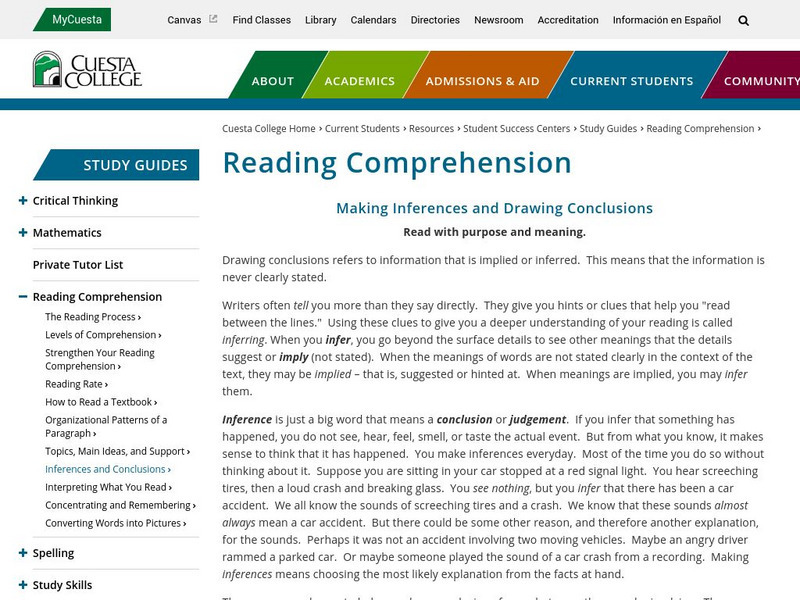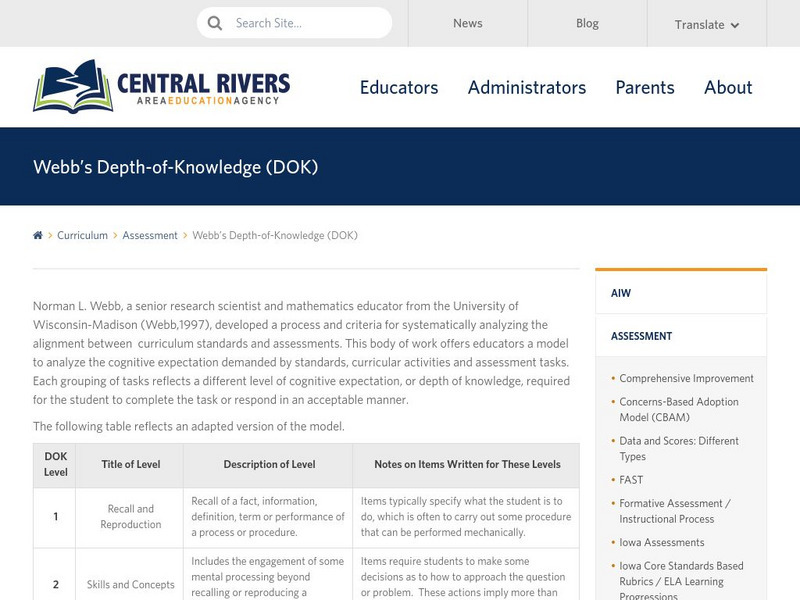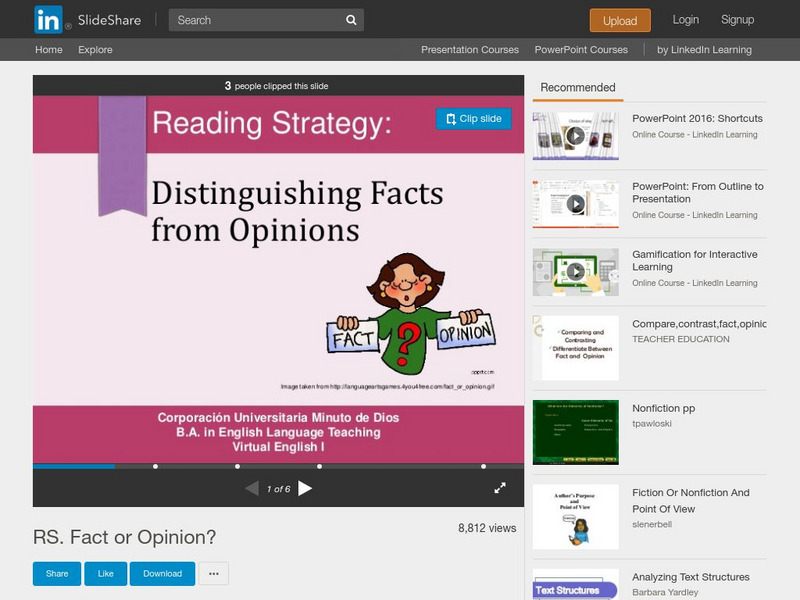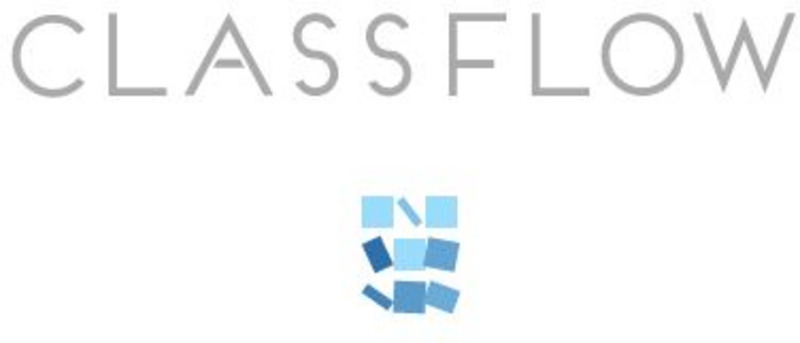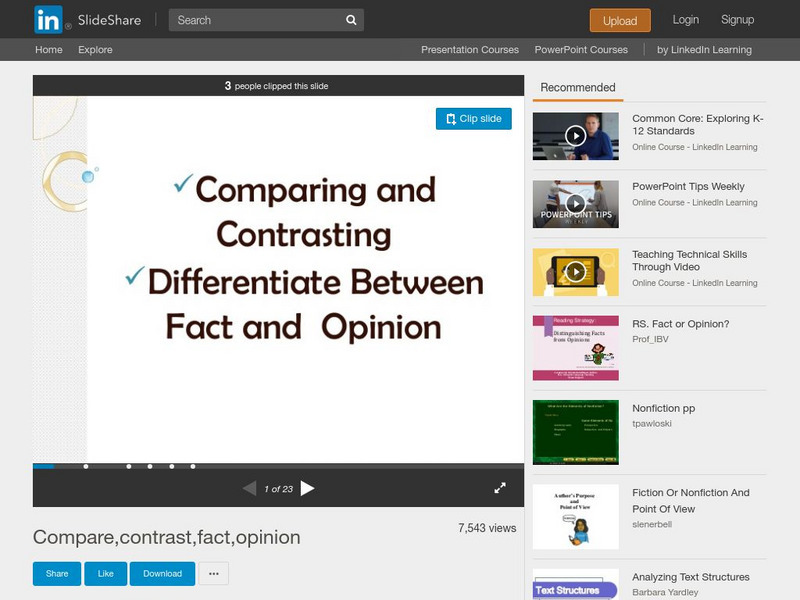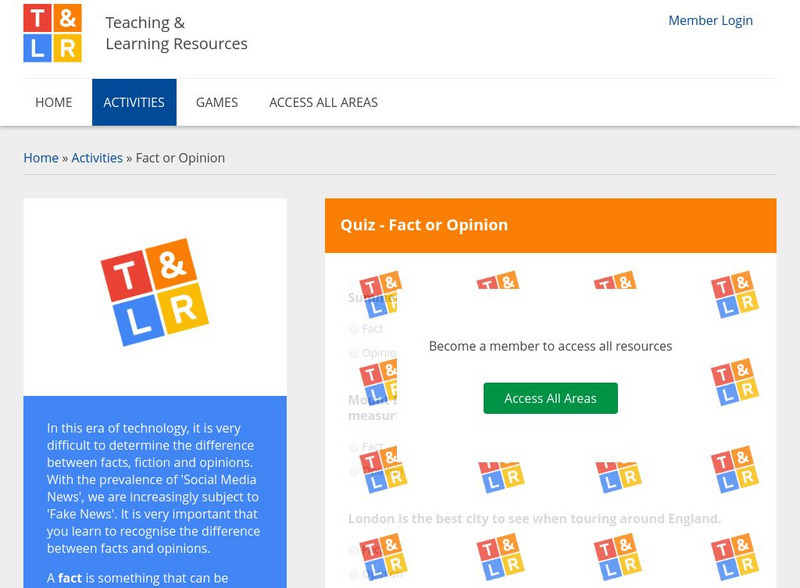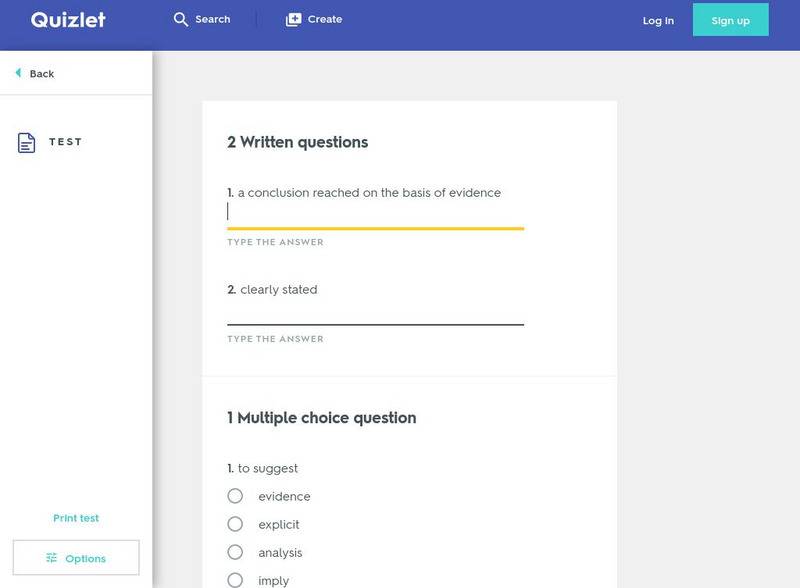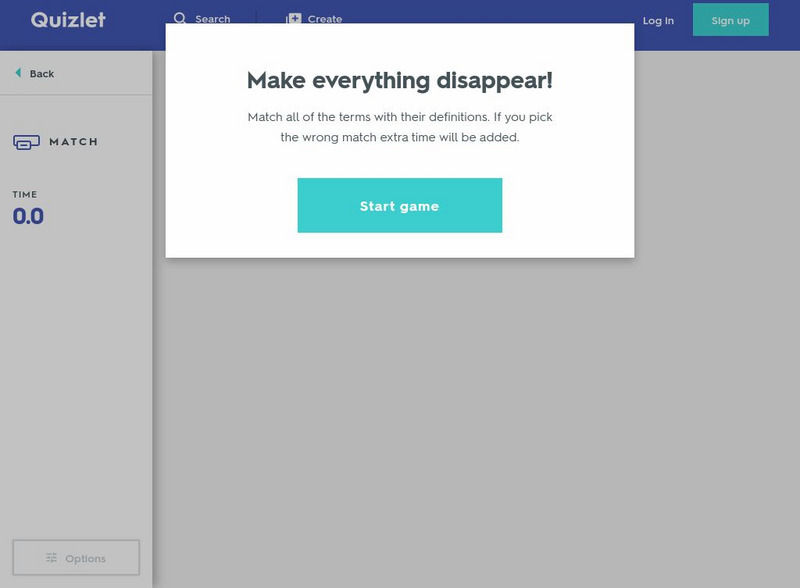Other
Park View Middle School: Mrs. Marro Sports Argument Writing
Numerous resources are provided to support the instruction of the argument essay.
McGraw Hill
Read: Does Technology Make Us Lazy?
Compare these two passages for some interesting ideas about how technology affects our lives. The questions that follow ask you to identify the main idea from either direct statement or inference.
English Zone
English Zone: Simple Present Tense: Fact, Habit, Opinion, or Schedule
This 10question, self-scoring quiz for fact or opinion, but it takes it further to include habit and schedule. Students read the statement and the possible choices and select the correct one. The options are explained with examples at...
Quia
Quia: Making Inferences, Summaries, and Conclusions
Read a short text and then choose the correct inference, summary, or conclusion in this Rags to Riches style game.
Other
Cuesta College: Reading Comprehension Guide: Inferences and Conclusions
Explanations and examples of inferences and conclusions in reading and in understanding context clues to define unknown vocabulary.
Science Education Resource Center at Carleton College
Serc: Why Should You Be Scientifically Literate?
In this lesson, students read, discuss, and analyze an article about the importance of scientific literacy, and develop an appreciation of the role science plays in their own lives.
TES Global
Blendspace: Ethos, Logos, Pathos
A learning module with eight links to images, videos, charts, and assessments about ethos, logos, and pathos.
TES Global
Blendspace: Argument Writing: Homework
A learning module with links to eight websites to use while writing an argumentative essay on how beneficial homework is.
Other
Central Rivers Aea: Webb's Depth of Knowledge (Dok)
This page offers a wealth of downloadable resources for teaching critical thinking skills. Choose the thinking skill you wish to teach, and several .pdf files will be available, including strategies, assessments and student handouts.
Intel Corporation
Showing Evidence Tool: Analyzing and Evaluating Information
If you're looking for a way to engage students in analyzing and evaluating evidence, rather than simply piling up information, this tool may be a boon. Students can use it to construct an argument, rate the quality of resources, and...
Tom Richey
Slide Share: Facts and Opinions
This slideshow focuses on facts and opinions; it provides definitions, examples, and articles for practice.
ClassFlow
Class Flow: Reading Comprehension: Context Clues and Inferences
[Free Registration/Login Required] This reading comprehension flipchart uses Activote and a puzzle to review context clues and inferences. It is intended to review for the FCAT or other state assessment exams.
ClassFlow
Class Flow: Fact and Opinion
[Free Registration/Login Required] Designed for grade 6, this flipchart covers the differences between fact and opinion. Students will analyze statements to determine if they are a fact or if they are an opinion.
ClassFlow
Class Flow: Fact or Opinion
[Free Registration/Login Required] This flipchart reviews the definitions of fact and opinion and gives the students opportunities to sort and identify fact and opinion statements.
Grammarly
Grammarly Handbook: Answering the Opposition in a Persuasive Essay
This page explains when and how to answer the opposing claims in a persuasive essay.
Tom Richey
Slide Share: Comparing and Contrasting: Differentiating Between Fact and Opinion
This downloadable slideshow focuses on comparing and contrasting, and distinguishing between fact and opinion. It provides definitions and examples of each.
ClassFlow
Class Flow: What Is an Inference?
[Free Registration/Login Required] This flipchart defines what an inference is and helps students understand the concept using Activote to review and practice.
Other
Prezi: Explicit vs. Implicit
Slideshow explains the difference between explicit and implicit meaning in texts and visuals. Includes good examples and practice questions.
Other
Thinking Skills in Education: Comparing Four Frameworks
An interesting article that discusses various types of thinking skills and why they are important in education.
Other
Teaching and Learning Resources for Ks2 (Ages 7 12):literacy: Fact or Opinion?
This is a 10 question, self-scoring quiz on separating fact from opinion. Students read a sentence and select "fact" or "opinion" from the drop-down menu.
Other
Cuesta College: Interpreting What You Read
This site from Cuesta College provides both in-depth definitions of fact and opinion, and several clear examples of each.
The History Cat
The History Cat: How to Write a Quality Cer (Claim Evidence Reasoning) [Ppt]
Presents an assignment where students must write an essay that includes a thesis statement, claims, evidence, reasoning, and a conclusion. Each of these is explained in the slideshow and a written example is provided.
Quizlet
Quizlet: 8th Grade Evidence/inference Test
Reading strategy terms are included on this vocabulary test. This test assesses the following words: analysis, evidence, explicit, imply, and inferences. Five multiple choice questions are provided on this assessment.
Quizlet
Quizlet: 8th Grade Evidence/inference Match
This interactive game of "Match" assesses students' knowledge of inference-related definitions. Students will match the correct definition of each inference-related term to the corresponding definition.






